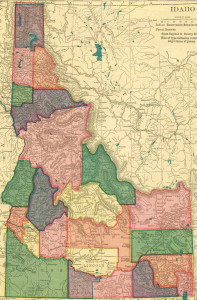 |
BARRETT RAINEY Second Thoughts |
Lots of folks have told me through the years “the only things certain in life are death and taxes.” As an official senior now, I know they forgot about Social Security and Medicare.
Several years ago, I reached the age when those two “certain” government programs became part of life. We had no choice. Happened rather seamlessly and both have provided the support they were governmentally supposed to. Adding a Medigap insurance policy – for those always necessary senior health needs excluded from Medicare – has about covered our situation. We’d really hate to be without ‘em.
I realize the wisdom necessary to authoritatively discuss Medicare and Social Security is supposed to come from our “experts” at the top – in Congress. Only “they” have the depth of understanding to conduct a thoughtful discussion of how these major programs should be redesigned and/or nearly eliminated. So any suggestions that might come from the ground up our here in the woods are likely not welcome. Ignoring that “wisdom” here are a couple of ideas from a satisfied senior experienced in both programs.
Without being armed – read “burdened” – by thousands of pages of statistics and ancillary reports from all sorts of government agencies, insurance companies, AARP and other outside sources – and the baggage of either political party – it seems to me there are really just two major things that need to be done to put both programs on a better financial footing. And both can be accomplished in one meeting lasting less than 30 minutes.
First, stop using a mortality table developed in 1964 to determine Social Security eligibility. We’re 49 years down the road from then and two major societal changes have taken place. We live longer and we work longer.
Today’s national insurance mortality numbers have Americans living closer to age 80 than 60-70 as was the case in 1964. No insurance company showing a profit today is using 49 year old data. Only our government.
It should be politically acceptable – meaning a no-brainer – to increase the beginning eligibility age to 70 over a period of 10 years or so starting in 2014. One year up in age each two calendar years or some such. Just cold, hard fiscal reasoning equitable for Republicans and Democrats alike. Us Independents, too. (more…)






